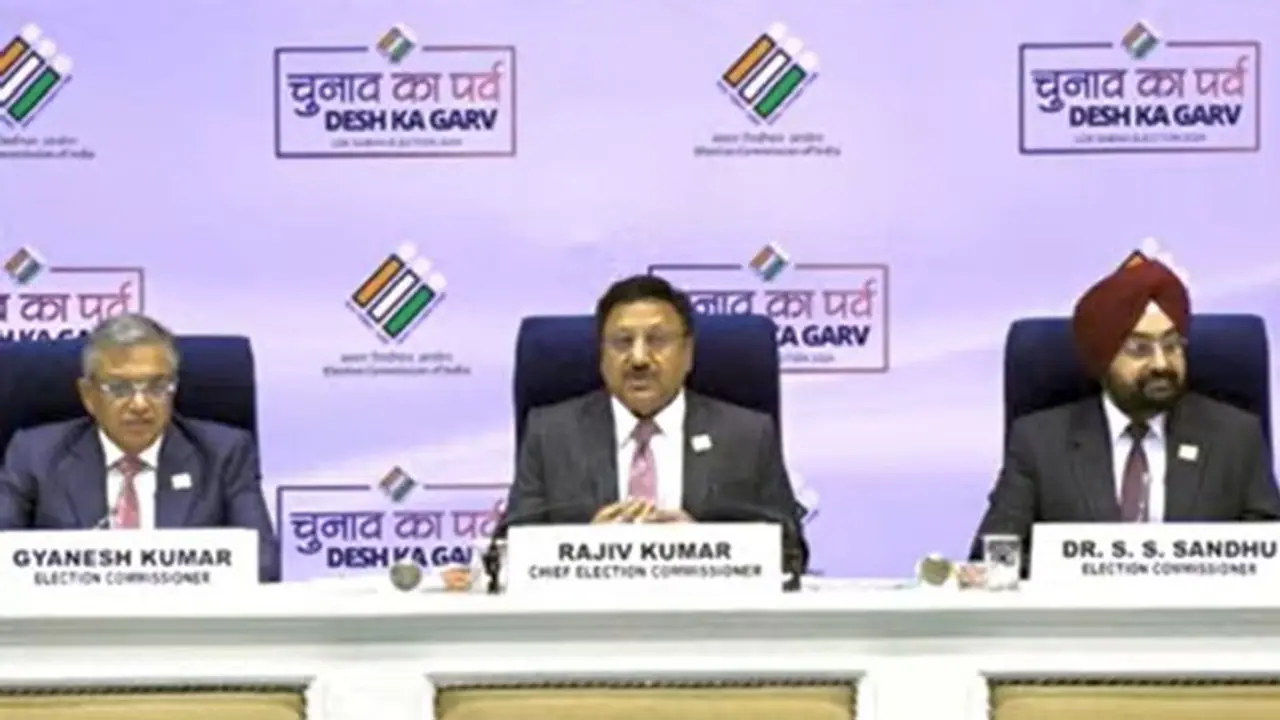2024 Lok Sabha elections: The elections, set to commence in April and end in June, will be the second-longest in duration in India's electoral history. Various factors, including delayed announcements and festival observances, contributed to the extended timeline.
The schedule of the 2024 Lok Sabha Elections by the Election Commission of India marks the second time in the country's electoral history that voting will extend into the hot month of June. Scheduled to commence in April and conclude in June, these elections are set to become the second-longest in duration after the inaugural parliamentary elections held in 1951-52. The election schedule spans 44 days, with several factors contributing to the extended timeline.

Historical Context
The first Lok Sabha elections, conducted over 68 phases, commenced on October 25, 1951, and concluded on February 21, 1952. This year's parliamentary elections, with a record number of 96.8 crore voters, are poised to be the lengthiest in seven decades. Notably, general elections were last held in June during the 1991 Lok Sabha elections, primarily due to the dissolution of the Chandrashekhar government following the Kishpath eclipse after only 16 months in power.
Reasons for June Elections
The Lok Sabha elections are slated to unfold in seven phases, kicking off on April 19 and concluding on June 1. Sources indicate two primary reasons for extending the elections until June. Firstly, this year's elections were announced six days later than in 2019, with the dates for the previous elections being unveiled on March 10.
Secondly, March and April boast significant festivals such as Holi, Tamil New Year, Bihu, and Baisakhi, necessitating holiday observances.
Challenges and Circumstances
The Election Commission faced the challenge of ensuring that crucial election dates, including the last date for withdrawal of nominations and polling day, did not coincide with festival dates. Moreover, unforeseen circumstances, such as the sudden resignation of Election Commissioner Arun Goyal, led to delays in announcing the election dates.
With only Chief Election Commissioner Rajiv Kumar remaining after Goyal's resignation and the retirement of Election Commissioner Anup Chandra Pandey in February, the Commission awaited the appointment of two new election commissioners, Gyanesh Kumar and Sukhbir Singh Sandhu, on March 14. They assumed office on March 15, with the election dates announced the following day.
According to a senior official, the Commission opted to delay the announcement until the full team was in place, despite the Chief Election Commissioner's legal authority to conduct elections independently, as the decision to proceed otherwise seemed unusual.
